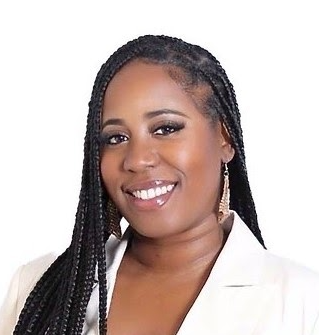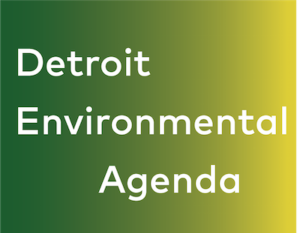Krystal P. Larsosa

Q: Where can people go to learn more about your biography? If not readily available online, please describe in 150 words or less, your relevant experience, public offices held (if any), involvement in environmental causes, and membership in any environmental organizations. If you currently hold office, describe any votes or actions demonstrating concern for the environment.
A: I am a child- and youth-development professional having worked in juvenile justice, the church, and the public school system facilitating safe play, interactive learning as well as art and outdoor activities for children and families. More important, I’m a mother and wife who set aside her career to focus on home, my family’s business interest, as well as my surrounding community. Because of my sacrifices, our three brilliant Black daughters at ages 14, 12, and 5 are known nationally as the Hershekissis by over 300k followers on their social media platform, which elevates Black girls, the Black community, and issues of our environment. Because of my private nature, I have ben largely uninterested in public office. However, the good fortune experienced by our family in consideration with this pivotal year for Black and Brown communities and the environments we inhabit motivated me to lend my perspective as a mom and successful media entrepreneur for scalable, common sense solutions for our families’ environments.
Community
Q: If elected, how will you work with Detroit residents to ensure that they benefit from and partake in the decision-making surrounding local development projects and that potential adverse impacts of those projects are identified, measured, monitored and mitigated? Moreover, how would you work to put more power into the hands of residents to maintain and revitalize their own communities and to access vacant land through the DLBA?
A: I will facilitate participatory governance by being present in the neighborhoods. I will fight for a lower threshold for community benefits agreements. And I will root out corruption to ensure Detroiters receive preferential and equitable treatment for purchasing and renovating homes and other property.
Q: If elected, what budget appropriations would you propose to increase investment in needed social and environmental services to help improve the quality of life and health of Detroit residents?
A: I am going to take a close look at every department, beginning with DPD, to cut out the fat and reallocate funding to decrease militarization and ensure officers are paid well and that we expand opportunities for their secondary employment to increase their presence in the neighborhood. I am going to transfer remaining excess DPD dollars to housing, water, transportation, and health services. I will champion the appropriation of HUD dollars under Section 3 to Black and Brown contractors in the Detroit neighborhoods. I will be an advocate for community block grants going to home owners for home repair. I will support a millage for affordable water as long as we put an end to tax captures on human service millages so that Detroit is assured our dollars are going where we designated them to go, and the people may actually afford water permanently.
Public Health
Q: What long term solutions do you see for addressing vehicle speeds and making our streets safer?
A: We need to increase police presence in the neighborhood by expanding opportunities for their secondary employment while moving toward a community-based policing model. More residential streets must be afforded speed humps. But there also needs to be more city and government presence in the neighborhoods, and the young people and other dangerous drivers will hear directly from me and other leaders they trust about the importance of careful driving. This means we will also need to offer alternatives for them to blow steam and feel free, such as opening up Belle Isle, Hart Plaza, and other important parks to them such as what we had when we were growing up.
Q: How will you work to reduce the negative health impacts of air quality on the residents of Detroit?
A: My office will explore the following:
- A program adopting tighter vehicle emission standards for commercial vehicles.
- Retrofitting and controlling emissions from existing power plants with the shift away from coal and requiring new power plants to use cleaner fuel such as natural gas.
- Working with foundations and the philanthropic community to introduce more trees to line neighborhood streets, and to increase rooftop solar.
- Leveraging or allocating funding to increase weatherization and the use of LED lights.
Q: If elected, what actions will you take to work toward safer, healthier, and more affordable housing for all Detroiters?
A: Champion a local affordable housing model, based on Detroit AMI instead of that of surrounding communities; end tax foreclosures for residents, end water shut-offs for residents; develop a permanent affordable water plan; allocate block grants to homeowners for home repair or updates; facilitate bulk purchase to bring down the cost of material; create apprenticeship programs for enlisting non-credentialed trades workers in the neighborhoods in home renovation to help bring down contracting cost to actually reflect labor.
Energy
Q: What are your priorities to reduce emissions and lessen the impacts of climate change in Detroit during your term in office?
A: Credit companies who covert to rooftop solar would be a key initiative.
Q: What are your plans for helping the city transition to renewable energy and how will you ensure that the cost benefits and increased resilience that come from the use of renewables is made accessible to low-income and vulnerable communities across Detroit?
A: Partner with cities across the country to buy in bulk and leverage the combined purchasing power. Potentially work with DTE to purchase large-scale renewable energy. Create a dedicated revenue stream to bring renewable energy to the community while ensuring a minimum percent goes to residents earning lower income.
Recycling
Q: How can the city increase recycling, composting, and the use of post-consumer recycled materials, while addressing the city’s litter and illegal dumping problem?
A: We need to seed a collaborative of neighborhood environmental groups and match them with a consistent stream of funding to develop and implement plans to put forward practical action in this arena. The groups need to have full support of the city for enforcement on dumping, with the understanding that violators are less inclined to offend when there is evident hyper local collaboration and control.
Jobs
Q: What steps would you take to prepare the local workforce to take advantage of and be part of the movement toward a green economy, through qualifying for good paying infrastructure and clean energy jobs, amongst others?
A: We will attract green companies and facilitate private-public-nonprofit partnerships for jobs training and placement in the green sector. Detroit can be a national leader on this front.
Water
Q: How will you ensure that clean water is accessible and affordable to all Detroiters?
A: I will fight to end water shut-offs and institute a permeant water affordability plan.
Q: How will you help municipal agencies and property owners integrate Green Stormwater Infrastructure (GSI) across the city to manage stormwater and reduce drainage charge fees for property owners?
A: I budget for a community task force that partners green agencies with the city of Detroit and community groups to determine the best course of action and to implement a plan.
Optional
Q: Please identify the top environmental concerns to you personally, identify the environmental issue in your community that is the most pressing, and what you would like to do as an elected official to address this most pressing concern.
A: The top environmental concerns from my perspective as a neighborhood mom are speeding cars, litter and dumping, and stray bullets. These are as much mental wellness and anti-poverty issues as they are law enforcement issues. Young people need and deserve to be inspired, to be offered safe recreational gathering spots, and to be connected to financial opportunities that give them an increased stake in the community while helping them contribute toward the generational wealth of their families. My budget, proposed legislation and public narrative will reflect these priorities.

